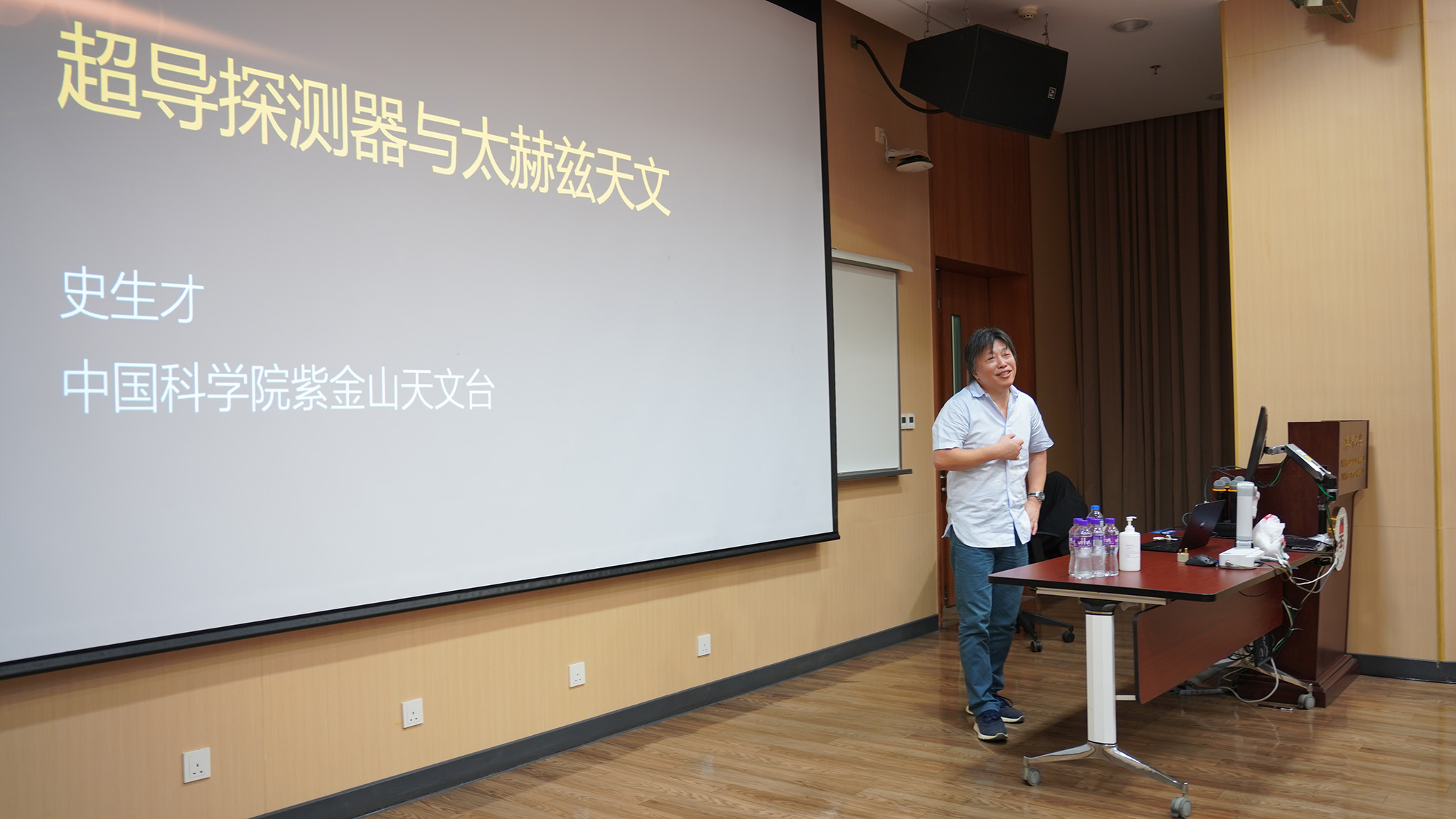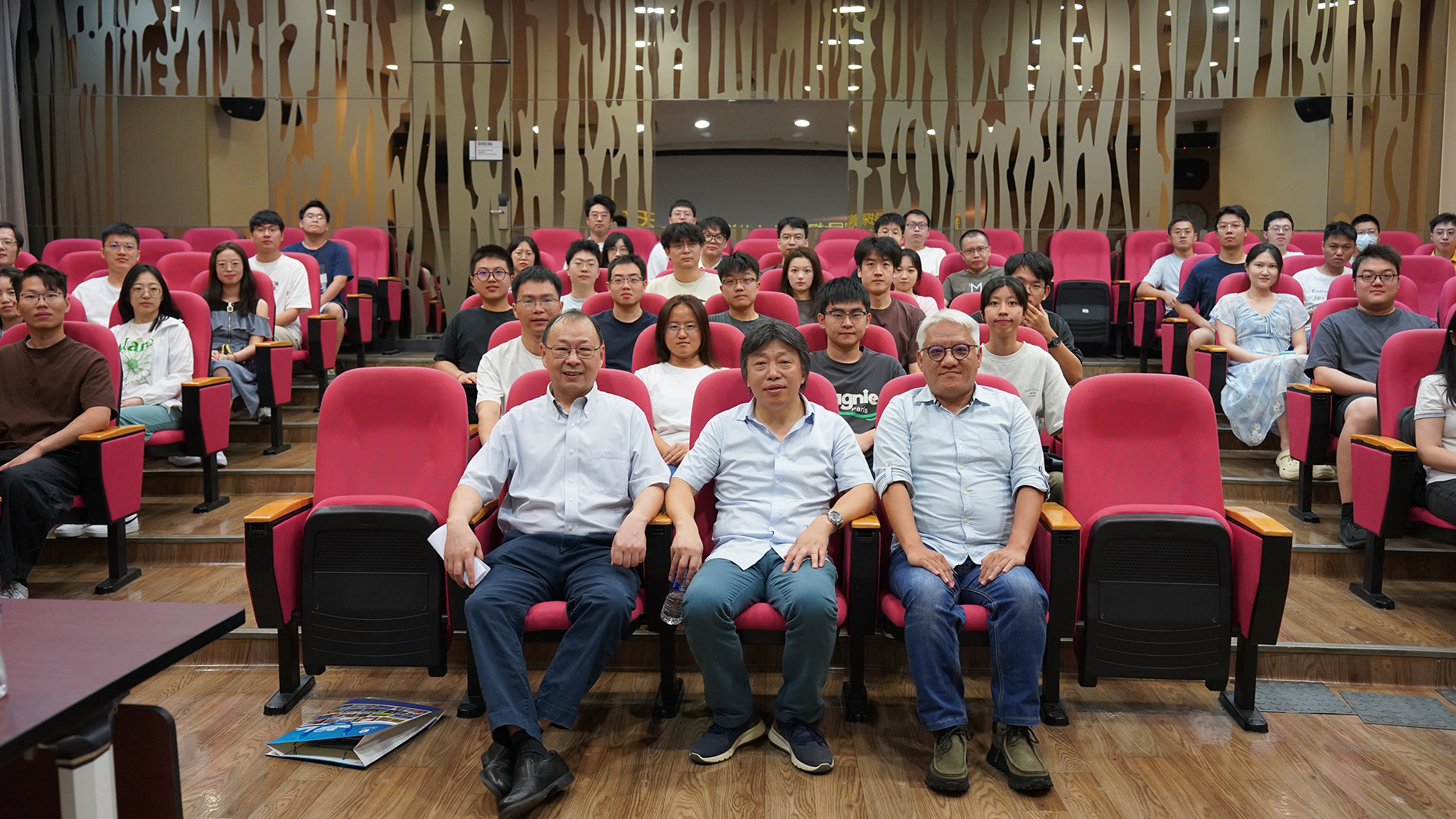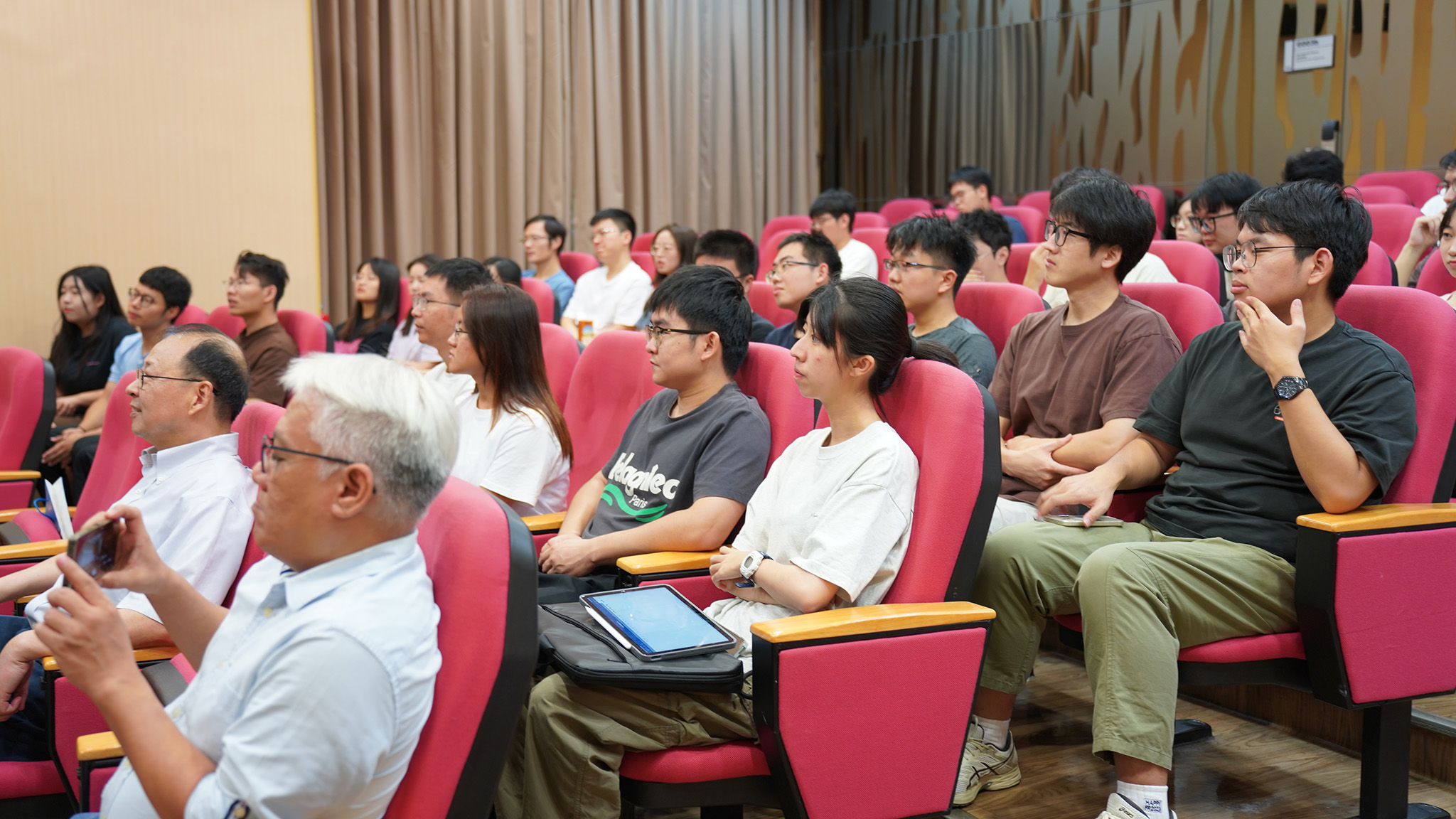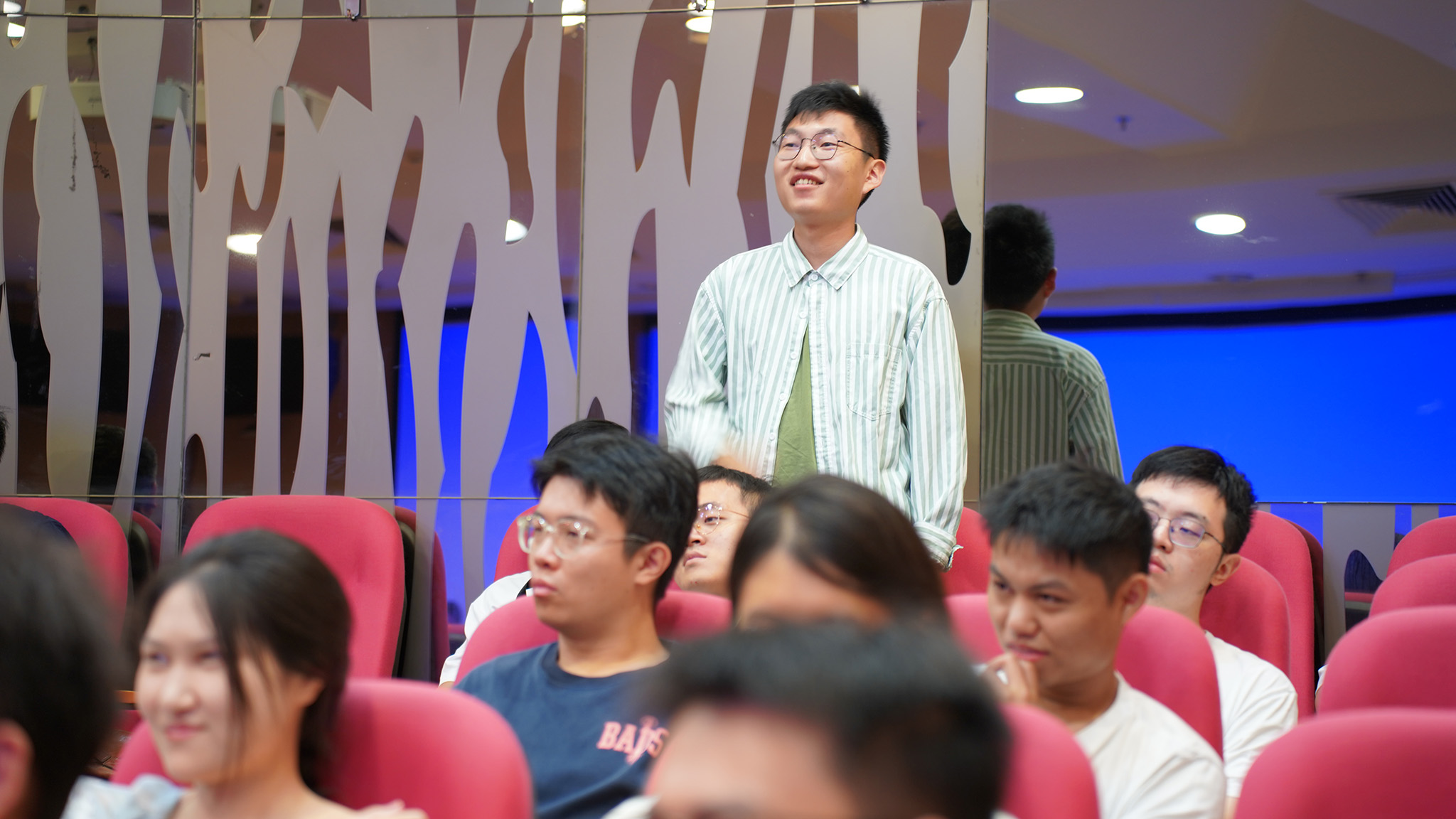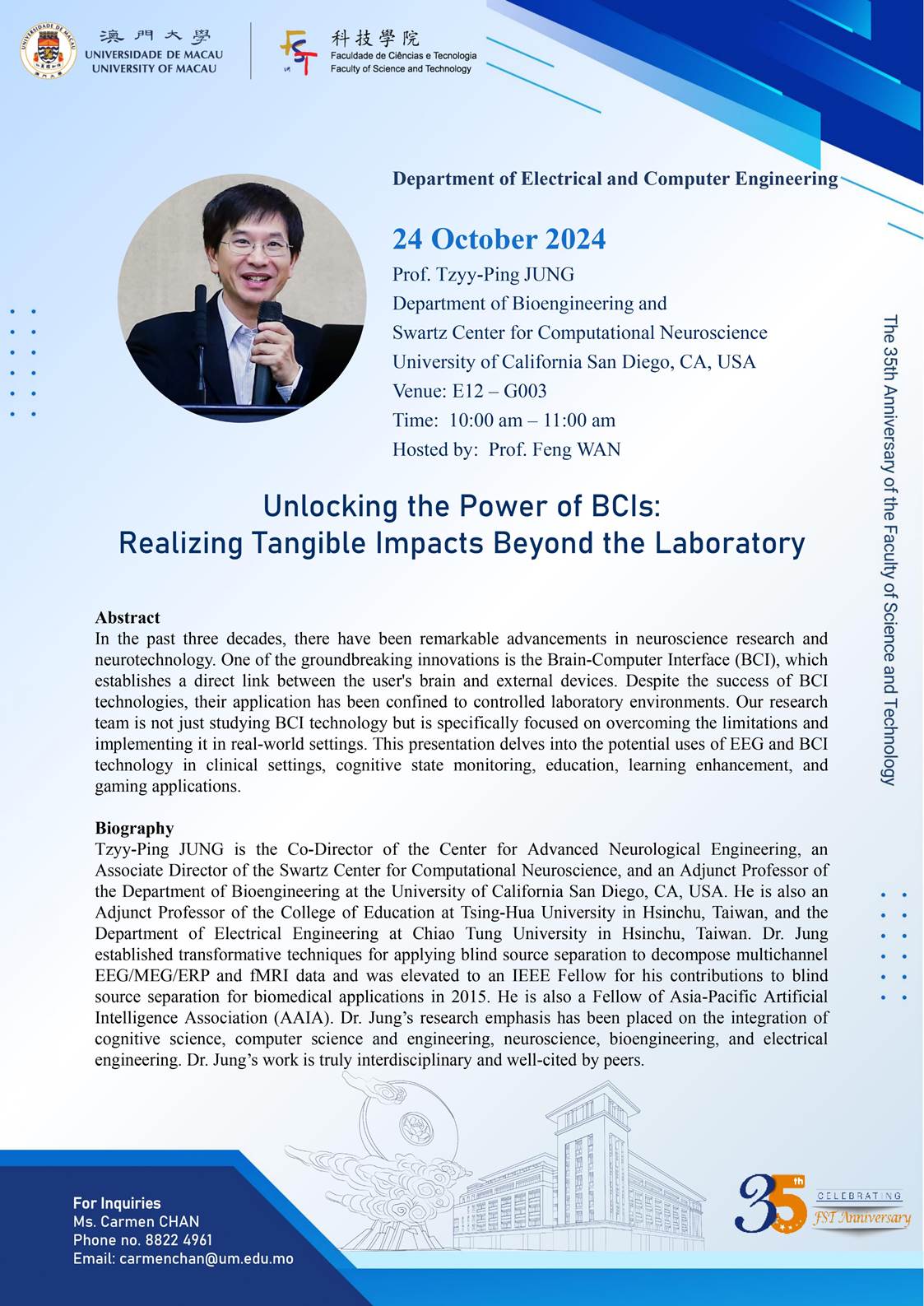
Talk Review 活動回顧
Prof Sheng-Cai SHI, a renowned Chinese radio astronomer and academician of the Chinese Academy of Sciences (CAS), delivered a talk at the University of Macau on the latest developments in terahertz (THz) superconducting mixers/detectors and related astronomical projects. The lecture attracted around 80 students who were eager to gain deeper insights into this unique frequency band, which allows for the observation of radiation invisible in the optical/NIR regime and plays a crucial role in studying the physical and chemical properties of celestial objects such as stars and planetary systems.
Prof. SHI is a senior researcher and doctoral supervisor at the Purple Mountain Observatory (PMO) of the Chinese Academy of Sciences. He earned his B.S. degree from Southeast University (China) in 1985, M.S. degree from PMO in 1988, and Ph.D. degree from the Graduate University for Advanced Studies (Japan) in 1996. Before joining PMO, he worked at the Nobeyama Radio Observatory, National Astronomical Observatory of Japan (NAOJ) from 1992 to 1998. Since 1998, he has been a professor and the head of the Mm- & Submm-Wave Lab at PMO, and currently serves as the Chair of the Advisory Committee of PMO. His research interests encompass the physics of superconducting devices, THz mixers and detectors, and THz applications. In recognition of his outstanding contributions, he received the HLHL Award in 2019 and was elected as an Academician of CAS in 2021.
In his talk, Prof. SHI highlighted the increasing significance of superconducting mixers and detectors in THz astronomy due to their sensitivity approaching the quantum limit for heterodyne mixers and the background limit for direct detectors. He also presented some of the most recent advancements in THz superconducting mixers/detectors and related astronomical projects in China.
This talk not only provided students with a profound understanding of the field of THz astronomy but also deepened their appreciation of astronomy as a whole, inspiring many young scholars to develop a greater interest in exploring the mysteries of the universe.
中國射電天文學家以及科學院院士史生才教授就太赫茲(THz)超導混頻器/探測器及其相關天文項目的最新發展今(10月10日)於澳門大學發表了演講。演講吸引了約80名學生參加,他們渴望了解更多關於這一獨特頻段的知識,它允許觀測在光學/近紅外波段不可見的輻射,並且對於研究恒星和行星系統等天體的物理和化學性質具有重要意義。
史生才教授是中國科學院紫金山天文台的資深研究員和博士生導師。他擁有東南大學的學士學位、紫金山天文台的碩士學位以及日本國立高等研究院的博士學位。在加入紫金山天文台之前,他在日本國立天文台野邊山射電天文台工作。作為紫金山天文台毫米波與亞毫米波實驗室主任,史聖才教授的研究興趣包括超導器件物理學、太赫茲混頻器和探測器以及太赫茲應用。他於2019年獲得華羅庚獎,並於2021年當選為中國科學院院士。在演講中,史聖才教授討論了由於超導混頻器和探測器的靈敏度接近量子極限(對於外差混頻器)和背景極限(對於直接探測器),它們在太赫茲天文學中扮演著越來越重要的角色。他還分享了太赫茲超導混頻器/探測器及相關天文項目在中國的一些最新進展。
此次演講不僅為在場的學生提供了深入了解太赫茲天文學的機會,也加深了他們對天文學的認識,激發了更多年輕學子對探索宇宙奧秘的興趣。



